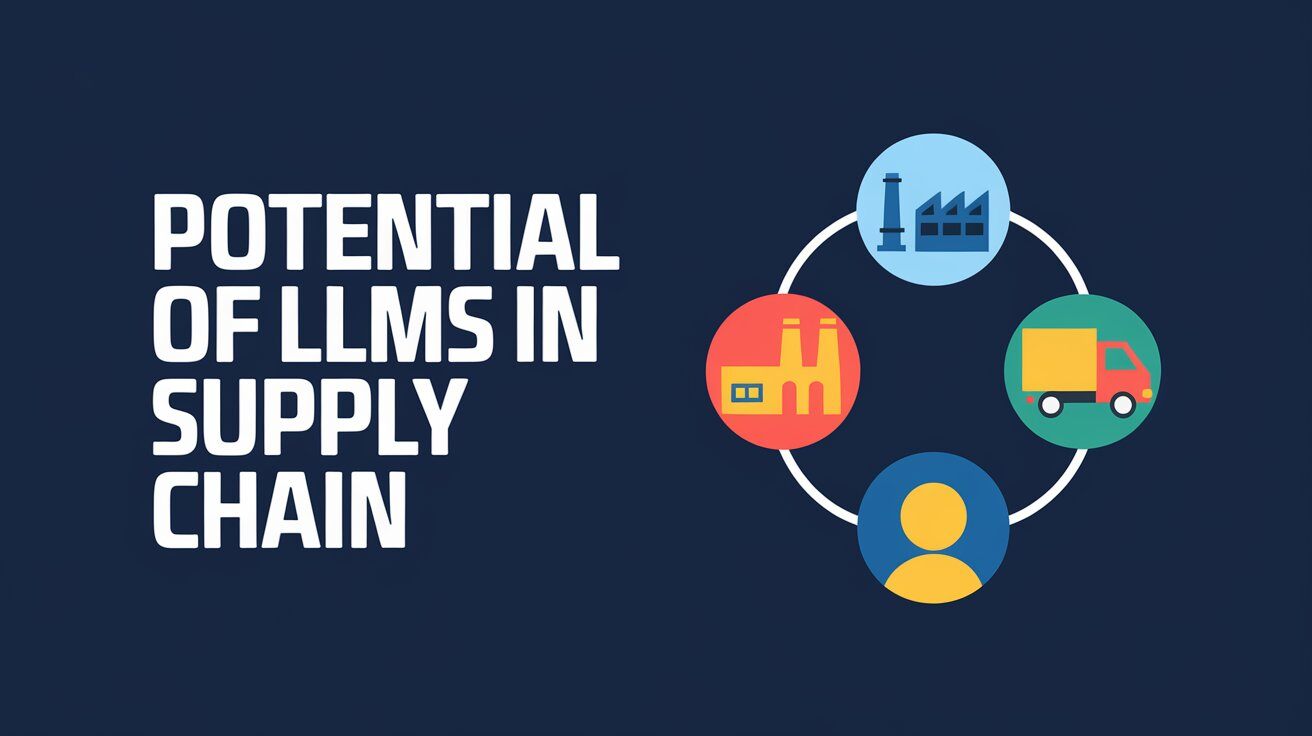Introduction
In today's fast-paced business environment, supply chain management (SCM) faces increasing challenges as global trade becomes more complex and customer demands evolve. The advent of Large Language Models (LLMs) has opened new doors for addressing these challenges, providing cutting-edge solutions for enhancing efficiency, accuracy, and decision-making in SCM. LLMs are changing the way businesses approach various aspects of the supply chain, from demand forecasting to supplier collaboration, enabling organizations to stay ahead of their competition. This article explores the transformative use cases of LLMs in supply chain management, demonstrating how they are reshaping the future of this critical business function.
Introduction to Supply Chain Management
Supply chain management involves the coordination and flow of goods from production to the consumer. Core components of SCM include:
-
Demand Forecasting: Predicting future customer needs to maintain adequate supply levels.
-
Inventory Management: Balancing stock levels to meet demand without incurring unnecessary costs.
-
Logistics: Coordinating the transportation and delivery of goods.
-
Procurement: Acquiring raw materials or products from suppliers.
-
Supplier Management: Maintaining relationships and ensuring quality and efficiency from third-party suppliers.
LLM Use Cases in Supply Chain
1. Demand Planning
LLMs can
analyze vast amounts of historical data to accurately predict future demand. These insights help businesses avoid stock shortages or overstocking, ensuring they are better prepared to meet customer expectations.
2. Supplier Collaboration
Through advanced natural language processing, LLMs facilitate improved communication between suppliers and manufacturers. By interpreting emails and contracts more efficiently, LLMs help minimize miscommunication and streamline order processing.
3. Risk Management
4. Inventory Optimization
By rapidly analyzing inventory data, LLMs can suggest optimal stock levels, reducing wastage, storage costs, and the risk of stockouts.
5. Logistics Management
LLMs enable real-time monitoring of transportation logistics, automating tasks such as route optimization and delivery scheduling, which ultimately improve the efficiency of the supply chain.
Case Study : Streamlining Order Notes with LLMs
A major challenge in supply chain management is the handling of order notes, which often include complex instructions that, if misinterpreted, can lead to errors or delays in order fulfillment. LLMs can parse these notes automatically, extracting critical details such as:
- Product Specifications: Ensuring the correct items are ordered.
- Delivery Timelines: Keeping track of delivery schedules to avoid delays.
- Payment Terms: Clarifying terms for financial transactions to prevent disputes.
LLMs can also learn from past orders, refining their capabilities over time. By recognizing recurring patterns or terminology specific to a company, LLMs become more effective at predicting future needs, helping businesses manage their resources better and anticipate customer requirements.
Enhanced Customer Experience
Sustainability in Supply Chain Management
As businesses face increasing regulatory pressure and consumer demand for sustainability, the integration of LLMs becomes essential for future success.
Conclusion: LLMs and the Future of SCM
As businesses increasingly adopt digital technologies, the role of LLMs in supply chain management will only continue to expand. From improving demand planning to reducing risks and enhancing sustainability,
LLMs offer a wealth of opportunities to drive efficiency, agility, and innovation. By leveraging the power of these advanced language models, organizations can optimize their supply chains, meet evolving customer demands, and maintain a competitive edge in an ever-changing market. Embracing LLMs is not just about staying relevant; it’s about setting a new standard for operational excellence in supply chain management.
Facilitating AI Integration with Pacific Data Integrators (PDI)
Integrating AI and Large Language Models (LLMs) into supply chain management can seem daunting, but with Pacific Data Integrators (PDI), it becomes a streamlined and supported journey. Partnering with PDI ensures a seamless transition and enduring success, turning challenges into opportunities. Discover how PDI's tailored retail solutions can transform your business by consulting with our experts today.
You can book a consultation today by visiting us at
PDI.
Posted by PDI Marketing Team
Pacific Data Integrators Offers Unique Data Solutions Leveraging AI/ML, Large Language Models (Open AI: GPT-4, Meta: Llama2, Databricks: Dolly), Cloud, Data Management and Analytics Technologies, Helping Leading Organizations Solve Their Critical Business Challenges, Drive Data Driven Insights, Improve Decision-Making, and Achieve Business Objectives.






